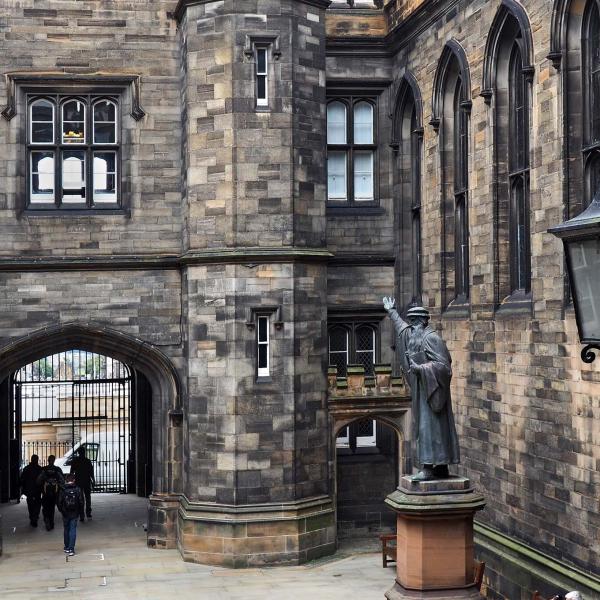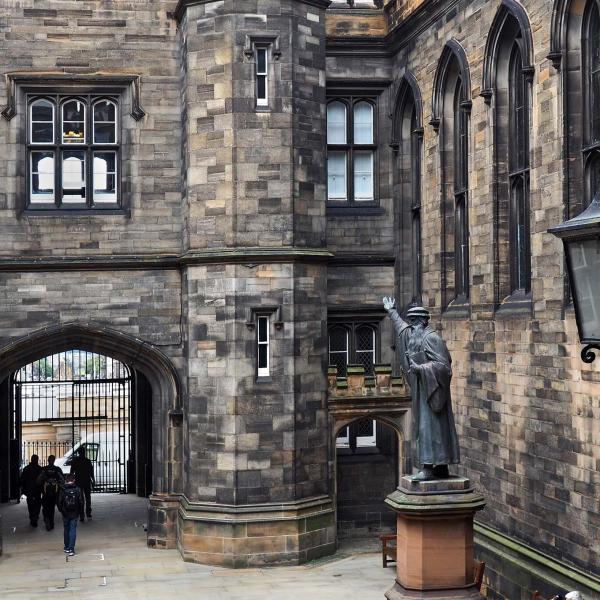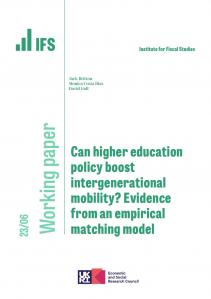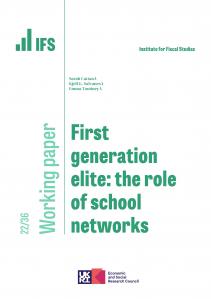Like hundreds of thousands of other parents, I waited anxiously for my offspring’s A-level results last week. Next year it’ll be waiting for GCSE results that keeps me awake. The ritual has not changed since I did my O and A levels in the 1980s.
The ritual stays constant. Despite near-frequent, often-disruptive change to the detail of courses and assessments, so does much else. The A-level and GCSE curriculums followed by my children have plenty in common with those that I followed. It’s still nine or ten GCSEs at 16, three or four A levels at 18, university offers based on predicted grades, the rush for places on the day results are known. Then it’s a three-year university course graded from first-class to third-class at the end, mostly studied full-time away from home. Finally, there’s the scramble for jobs, for which degree subject studied is usually irrelevant.
That, of course, is all in the context of massive expansion both in numbers staying on to do A levels and in numbers going on to university. You might be forgiven for thinking that this is a route followed by virtually every young person in the country. Despite the media coverage, it isn’t. More than 40 per cent do enrol at university in England by the age 19. That’s a threefold increase since the mid-1980s. A majority still do not.
After decades of much the same, we have rather come to accept and expect the broad outline of what we have. It becomes hard to imagine that there might be alternative worlds. Things don’t have to be as they are.
First, why do we get our 16-year-olds to sit GCSEs at all? These exams are the remnants of an age when most young people left school at 15 or 16. Few other countries maintain high-stakes public exams at age 16. Now that all are expected to stay in some form of education until 18, it’s not obvious why we continue to do so.
Second, why A levels? Why do we ask 16-year-olds to narrow their field of study to only three or four academic subjects? Again, this is highly unusual by international standards.
These are not new questions. Back in the early 2000s, Mike Tomlinson, a former chief inspector of schools, considered all these issues in a report commissioned by the Labour government of the time. His extensive, well-considered, evidence-based report proposed doing away with the GCSE and A-level system and replacing it with a broader 14-to-19 curriculum, encompassing vocational as well as academic qualifications and covering ICT and other important skills. It was summarily rejected in favour of the status quo.
There is nobody so conservative as a secretary of state for education. They will have done fine from the present system. Perhaps more important, they worry that we, the voters, are ourselves never more conservative than when confronted by possible changes to a familiar school system that we remember through a rose-tinted rear-view mirror.
So we are stuck with GCSEs and A levels. What about what comes next? If you follow the well-trodden path to university, you’ll have gone through the process of applying in the autumn before you want to start and waiting on your grades. In one sense, this all works pretty well. It’s quite easy for the students. But it’s also a silly guessing game. Not only do you have to guess whether you’ll get the required grades, you also have to guess whether the university is serious about wanting the grades. Some will turn you down if you miss the offer by a tiny margin. Some make offers far higher than they will actually accept because it looks good to claim that they are more selective than they actually are.
You play the game, you go to university, you get a first. Congratulations. But when some universities award first-class degrees to more than 40 per cent of their students, and others with higher entry standards award them to less than 30 per cent, what does it all mean? It’s almost impossible for employers to make anything of it. So they judge, possibly unfairly, less on the basis of your degree class than on the basis of your A level results and the reputation of the university. This consolidates the stranglehold of Oxbridge and a small number of other very high-status institutions. It is simply impossible to know how to compare results. So each university has an incentive to inflate its grades. The classification system is all but meaningless. This is desperately unfair to graduates who have no way of signalling how well-trained they are.
Finally, the majority of graduate jobs are open to those with degrees in any subject. This has big advantages. Young people aren’t forced into career choices too early. Defenders of the system will say that it is the general skills gained at university — independent study, critical thinking, teamwork — that are valuable. Perhaps. But what we have looks like a rather oblique and expensive way of instilling those skills. It is probably one reason why those from less advantaged backgrounds still earn so much less than their better-off peers doing exactly the same course. There is still something of the cult of the gentleman amateur about our graduate job market.
Quite a few sacred cows there. I doubt many would want to slaughter all of them. But some surely have outlived their usefulness.
And my son? Well, he missed his first-choice university offer by five full grades but was accepted anyway. He’s turned them down. He embarks on a higher-level apprenticeship next month.
This article was originally published in The Times and is reproduced here with full permission. Paul Johnson is director of the Institute for Fiscal Studies. Follow him on @PJTheEconomist.









